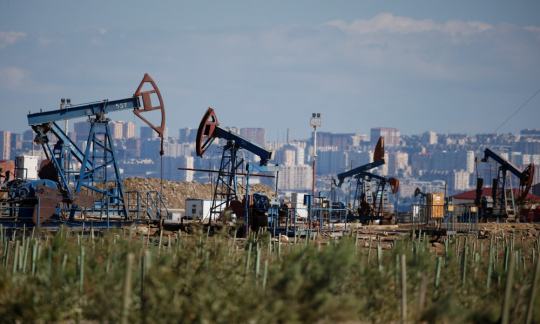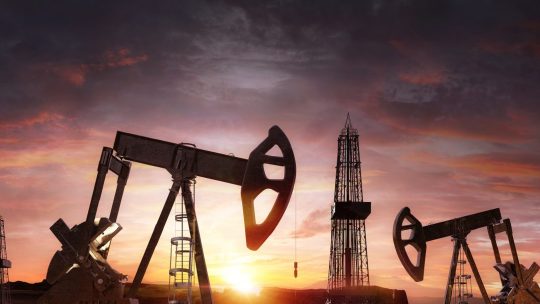#tax exports petrol
Text




Did you know QuickTaxnBooks.Com provides
$2500 Tax Preparation Guarantee;
$1 Million Tax Audit Defense ™ program; and
Identity Theft Restoration
with every 1040 tax return you file with us?
www.QuickTaxnBooks.Com
#quicktaxnbooks#tax#property tax#tax planning#tax evasion#tax experts#tax exports petrol#irs#irsusa#1040#1040NR#1065#1120#1120S#990#Vikram Angurala
2 notes
·
View notes
Text
Fitch expects windfall tax to be phased out in 2023 - Times of India
Fitch expects windfall tax to be phased out in 2023 – Times of India
NEW DELHI: Fitch Ratings on Tuesday said it expects the five-month-old tax on windfall profits made by oil companies to be phased out in 2023 on the back of moderating oil rates. The government had on July 1 levied a new tax on domestically-produced crude oil as well as on the export of petrol, diesel and jet fuel (ATF) to take away windfall gains accruing to oil companies from a global surge in…
View On WordPress
0 notes
Text
“It seems the most logical thing in the world to believe that the natural resources of the Earth, upon which the race depends for food, clothing and shelter, should be owned collectively by the race instead of being the private property of a few social parasites.
— Ralph Chaplin
While more and more homes in Britain suffer severe flooding because of climate change, Rishi Sunak has decided that North Sea oil and gas extraction should be speeded up.
“Hundreds of new North Sea oil and gas licences to boost British energy independence and grow the economy. ” (GOV.UK: 31/07/23)
This policy has now been confirmed and will be included in the king’s speech. More concerned with winning votes than the catastrophic effects of climate change:
“Sunak has already watered down the government’s climate targets, pushing back the deadline for selling new petrol and diesel cars and the phasing out of gas boilers, prompting furious condemnation from the automobile and energy industries.” (Guardian:05/11/23)
The excuse used by Sunak to justify his planned increase in fossil fuel production is "to reduce emissions and boost UK energy independence."
These claims are simply not true.
Encouraging more oil and gas production does not reduce emissions - it increases them. If you expand the global market for fossil fuels then more will be used with the obvious accompanying increase in emissions. What is more, Rystad Energy, an independent advisory and business intelligence company, has stated that:
“ UK oil rigs are among the highest carbon emitters in Europe. CO2 emissions released into the atmosphere from extracting North Sea oil and gas reached 13.1MM metric tonnes in the UK in 2019, or 21kg of carbon dioxide for every barrel of oil produced – far greater than the Norwegian North Sea, which produced 4MM metric tonnes of CO2 in 2019, or 8kg of CO2 a barrel.” (Guardian: 13/10/22)
But let us put this evidence aside for the moment and give Sunak the benefit of the doubt regarding emissions, and look at his other claim that increase extraction of gas and oil from the North Sea will “boost UK energy dependency".
Again, simply not true. It was reported only a few weeks ago that the UK EXPORTS 80% of North Sea oil which is processed abroad and then sold back to us at whatever international price makes the oil and gas industries the most profit. (CNN Business: 27/09/23)
The only way to secure energy independence is to have state ownership of our natural assets. But that is not The Tory way.
Unlike the Norwegian government, who invested their countries enormous oil and gas revenues in economic sectors across the world, creating a State owned sovereign wealth fund now worth $1.2 trillion in assets, our Tory government squandered the money, continues to allow private investors to reap the profits, and have refused to create a UK Sovereign Wealth Fund because they are ideologically opposed to public ownership.
While Sunak is forced to sell licenses for oil and gas extraction in order to secure at least some benefits from our natural resources, the Norwegians impose a 78% tax levy on private oil and gas companies.
“UK should match Norway’s 78% North Sea oil and gas tax, thinktank says.” (guardian:28/10/22)
But that isn’t going to happen. Instead, our ideologically driven Tory government, opposed to taxes of any kind and especially those aimed at the rich and corporate world continue to draw headlines like these.
“Shell and BP paid zero tax on North Sea gas and oil for three years.” (Guardian: 30/10/22)
and
“North Sea oil and gas industry offered ‘get-out’ clause on windfall tax.”(Guardian:09/06/23)
The stark contrast between the way successive Tory Government’s in the UK have managed the “bonanza” of North Seal oil and gas and the way the more socialist Norwegian governments have utilised their natural resources couldn’t be more stark.
#uk politics#rishi sunak#sovereign wealth fund#oil and gas extraction#environment#profits#benefits#climate change#flooding
30 notes
·
View notes
Text
As An Aside
I have always found it ridiculous that governments like to report the average wage instead of the median wage.
The two are not the same. In fact, the presence of outliers (of which there are many) results in significant differences.
In 2021, the Australian Bureau of Statistics said that the average yearly wage (pre-tax) was around $90,000. Great, right? Or maybe not. The median yearly wage for that same period was around $63,000. That’s a difference of roughly $27,000, and those two figures paint very different pictures.
The average makes you think that many Australians are earning close to six figures. The median tells you that half are earning less than $63,000. When the discrepancy between the average and the median is this large, I see no reason to use the average other than to obfuscate.
In a similar vein, I find the reporting of only the raw GDP (Gross Domestic Product) while telling everyone that things aren’t that bad to be abhorrent. The raw GDP of a country is largely irrelevant when it comes to how good or bad things are for people. What you want to look at is GDP per capita (i.e., per person) and how that compares to previous years.
Australia’s government has loudly proclaimed that things aren’t that bad. GDP is still growing! But what they haven’t talked about is that we may very well see a GDP per capita recession within the next year. In other words, if GDP is the pie, then the pie has gotten bigger. But how much of the pie each person gets has gotten smaller. In other words, no, things are not peachy for everybody.
What really gets me is that Australia somehow has some of the highest natural gas prices in the world despite being a next exporter of gas. This in turn has led to apocalyptic increases in energy prices along the east coast that are absolutely going to cause real suffering amongst people, particularly those of lower economic means because their budgets are already severely stressed due to inflation, rising interest rates, and housing costs.
This speaks to systematic and repeated failure at the state and federal level because a net exporter of a natural resource should not be paying higher prices for that resource than the people it’s exporting it too. Previous governments have given companies in the eastern states the ability to export natural gas without having to sufficient reserves to control domestic prices. So of course what do they do? Sell as much of it overseas as they can, which screws over the price in the eastern states of Australia as well. That this is allowed is lunacy. Whoever decided not to mandate a decent level of reserves for domestic use to keep prices low was an idiot. Yes, the gas companies make more money, and you can tax them for that, but the rest of the economy suffers. Every single person and business who relies on energy (because electricity is usually generated with natural gas) ends up paying more.
More to the point, with many countries facing enormous inflationary pressures, increasing energy prices only add to the problem. It’s easy for reserve banks and governments to say to people “don’t ask for a wage increase or inflation will get worse” but at a certain point people no longer care. If renting or owning a home costs more, and keeping the lights or heating on costs more, and buying food costs more, and putting petrol in the tank costs more, people are rightfully going to ask “how the hell do I pay for all of these increase?”. People will ask why companies aren’t doing their part to lower inflation and are instead profiteering.
We saw this in Britain where repeated attempts to control inflation largely failed, and people basically went “screw it” and pushed for wage increases anyway because with inflation continuing to rise, they had no choice. Without increased wages, they couldn’t survive.
It’s really a multi-level failure in policy. Central banks have the equivalent of a hammer (interest rates), but controlling inflation cannot be done with interest rates alone. Too many federal governments (Australia’s amongst them) have simply thrown up their hands and said that controlling inflation is impossible for anyone but the central bank (i.e., the Reserve Bank). But governments have a critical role in managing inflation because they operate the legislative levers that can help to control supply and demand in critical areas like housing, energy, and basic consumption (e.g., food). They can - and must - assist the central bank because monetary policy in the form of interest rates is toothless without legislative support that addresses key areas of the economy.
For fuck’s sake, this shit is so obvious that the government has to know, but it’s politically expedient to do nothing and let the Reserve Bank (in Australia’s case) take the heat because actually doing something might require being unpopular for a while.
Also, I should point out the absolute futility of trying to cool down demand in the housing sector by building 30,000 homes over the next five years... while also bringing in more than a million migrants. Now, I am a migrant myself. I have nothing against migration when it is properly handled. But do the math. If housing is an issue right now (and the rental situation in many parts of Australia has basically become Mad Max) what do you think is going to happen if you continue to bring in more people than you can build houses for?
You get a housing crisis. You get places where rental prices can increase by upward of 25% in a single year. And this just drives inflation higher and higher because people need more money just to keep a roof over their heads.
The saddest thing (and honestly it would be funny if it wasn’t real life) is that some idiot in the government is going to look at the skyrocketing housing prices and conclude that all is well. After all, look at how much Australian’s are worth! Yeah. If you count the skyrocketing house prices as part of net worth, maybe the net worth of Australian’s as a whole will increase, but you’re creating an absolutely miserable situation for everyone else.
7 notes
·
View notes
Text
Writing Reference - Let’s talk about taxes!
It’s come to my attention not everybody had the eight years of financial studies I have.
So here’s some basic information about taxes to help in your fantasy world building!
Tax is the money citizens pay their government (which can be any kind: monarchy, democracy, military...), it goes into a large imaginary jar alongside money the government has perhaps earned by its own means, and that money is used to pay government employees, infrastructure, the monarch’s lifestyle, so on...
There are two main types of taxes:
Direct Tax: This is the tax that varies for each person depending on their earning. So, for example, income tax, inheritance tax...
Indirect Tax: taxes that are the same for everybody indiscriminately. So for example tax on products we buy (the amount of tax I pay on petrol is the same as a millionaire) or say rubbish tax (some cities charge every house twenty euros a year for rubbish, same for the richest and poorest).
Some taxes are a mix of both where there’s a fixed amount and a variable.
So, which is better? Obviously, neither. Though direct tax is usually considered more fair.
A funny thing about taxes people don’t realize, is it’s about way more than money! Taxes can actually be used to encourage of discourage behaviours in citizens.
Don’t want people smoking? High tax on cigarettes. Want people to go swimming more? Low or no tax on swimming pool entries.
You can tax large cities higher and small towns lower to encourage people to live in certain areas. You can make tax exceptions if people join the army, have children or so on...
Taxes are also used to encourage exportation (many countries do not tax products sold abroad because they bring money into the country) or discourage importation (higher or double taxing products being imported).
Using different taxing systems for different jobs to encourage work in certain sectors!
There are so many ways to use taxes to affect the behavior of citizens and I think it’s a shame we don’t see more in fantasy worlds, be it for good or evil.
There’s also an argument over the morality of certain taxes. For example, medication we need to live? Should that cost more because of taxes? Probably not. The argument is the government needs to collect money but given the many ways a goverment can collect taxes perhaps they should consider raising taxes in none-essentials while avoiding taxes in the essential. (Yes, I know we’re going into politics here, but it’s hard to talk about taxes without it).
Froma world building perspective though, when deciding what gets taxed and what doesn’t, you need to think about who your goverment cares about? Who are they working for? What are their objectives?
Another important function of taxes in society is the redistribution of wealth. This is why the rich in theory pay more taxes (I’m going to come back here in a moment, don’t worry). And this is why the poor or in need receive wellfair (which is paid for with taxes). It’s the redistribution of wealth. Without taxes, a rich person could technically never spend their money and it would never go back into the economic cycle, meaning there literally is not money for the poor to access, never allowing them to advance financially.
Is taxing the rich more ethical? In my opinion, yes, but I’m not going to go into that amount of politics. Instead, with this question I want to talk about a statement I hear a lot by people who haven’t had taxes properly explained to them (and I mean anybody, I know very smart people who didn’t understand because taxes are explained terribly, it’s not your fault if you did not understand this!)
The statement I hear over and over again is:
Rich people have to pay like 40% of their income to taxes!
No, they don’t. The percentage varies. Some people think it’s 40%, 50%.. it doesn’t matter.
Income tax works on a stair system, I’m going to make up numbers here:
If you make up to 1000 you pay 5%
If you make up to 2000 you pay 10%
If you make up to 3000 you pay 30%
Wow, that’s unfair! The goverment takes 30% of somebody’s income just for making 3000! Actually, no. People say up to but the truth is, if you earn 3000 what you pay is:
5% on the first 1000
10% on that second 1000
30% on that last 1000
So you’re not paying 30% on your total income. This is done because each bit of money you get more is less necessity and a more a luxury.
Some countries are even considering a 100% tax after a certain point because honestly no one person needs that amount money coming in every year!
So yeah. I realise as I ramble on, that perhaps this last part isn’t useful for writing fantasy worlds and is just informative... but I hope you learned something and I’m sorry for educating.
Back to fantasy... want to motivate a rebellion? Tax something everybody loves so much that the increase in price and lack of accessibility will cause one.
Want to earn the love of your citizens after replacing a new goverment? Remove taxes on something everybody loves making it cheaper.
Want to show a benevolent goverment? Use taxes to pay for quality free healthcare, security or education. This is something that exists all throughout Europe and has existed in many cultures historically.
Want to do an evil goverment? Do an indirect tax that unfairly affects the poorest classes and makes it near impossible to climb the financial ladder.
There’s a lot you can do with taxes if you want to be creative. You can start wars with taxes, start civil wars, enable behaviours, take down industries or create new ones...
If you found this interesting and want to work on your financial system inside your fantasy world, I’d recommend maybe watching a couple of videos on YouTube regarding microeconomics as it’s a great way to widen your vision on how economics works.
Also, feel free to send me any questions, it’s always cool to use my soon to have degree for something.
As usual, check out my book, stories I’ve written plus other social medias: here.
#writing tip#writing trick#writing tips#writing tricks#writing economics#writing taxes#worldbuilding#writing#world building#fantasy world#fantasyworld#fantasy worldbuilding#writing resourc#writing resource#writing reference
25 notes
·
View notes
Text
1. Advantages and disadvantages of various vehicle types: Different vehicle types have their own pros and cons. For instance, trucks are best for long-term cargo hauling due to their durability and ample room.
2. Ensuring goods’ safety while being transported: This involves proper packaging, securing the load, regular inspections, adhering to safety regulations, and using reliable transportation methods.
3. Steps to start a truck business: Key steps include performing market analysis, drafting a business plan, developing a brand, formalizing business registration, acquiring necessary licenses and permits, securing funding, setting pricing, and acquiring equipment.
4. Frequency of gasoline tax payment: The central and state governments of India levy taxes on petrol and diesel. The central authorities apply excise duty at the rates of Rs.19.90/litre and Rs.15.80/litre respectively.
5. Completing a contract with a factoring firm: This involves finding a reputable factor, providing them with information about your accounts receivable and customers, selling the approved invoice to the factor, and receiving a percentage of the total amount immediately.
6. Locating a driver: This can be done using the Device Manager in Windows, the Run window, the Command Prompt, or a free third-party utility.
7. Benefits of Hot Shot Loading: Hotshot deliveries are known for their cost-effectiveness, speed, flexibility, and efficient logistics.
8. Using the TMS to look for loads: Avaal TMS is a transportation management software that allows you to find and bid on loads.
9. Discussion with a broker: This involves understanding the broker’s requirements, negotiating terms, and building a professional relationship. It’s important to ask the right questions and provide accurate information about your capabilities and needs.
10. Definition of Rate Confirmation: A rate confirmation is a document that outlines the details of a shipment, including the rate, pickup and delivery locations, and other relevant information. It is agreed upon by both the carrier and the broker or shipper.
11. Bill of Lading: A Bill of Lading is a legal document between the shipper and carrier detailing the type, quantity, and destination of the goods being carried. It serves as a shipment receipt when the carrier delivers the goods at the predetermined destination.
12. Where to look for a job as a dispatcher: Job opportunities for dispatchers can be found on job search websites, company websites, industry-specific job boards, and networking events.
13. Papers necessary for freight clearance: These may include a Bill of Lading, Commercial Invoice, Packing List, and a Certificate of Origin. The exact documents required can vary depending on the nature of the goods and the specific regulations of the importing and exporting countries.
14. Nuances regarding contract termination: This refers to the specific conditions and procedures for ending a contract, which can vary based on the terms of the contract and the laws of the jurisdiction.
15. U.S. trucking industry jargon: This refers to the specific terms and phrases commonly used in the U.S. trucking industry. Examples include “deadhead” (traveling with an empty cargo load), “reefer” (a refrigerated trailer), and “bobtail” (a semi-truck operating without a trailer).
16. Lessons in Marketing: This could cover a wide range of topics, from understanding your target audience and developing a marketing strategy, to leveraging digital marketing tools and measuring the effectiveness of your marketing efforts.
#truckingindustry#trucking factoring#truckinglife#trucking company#avaal#ontario#trucking#truck load#canada#logistics
0 notes
Text
Revolutionizing Energy: The Alternative Fuel Frontier
Fuel is required for any engine to function, as engines run in fuel. Fuel is also used to generate electricity, which can then be used for other purposes such as lighting and heating. Alternative fuels are the replacement fuel for traditional fuels such as petrol and diesel. Alternative Fuel Market include natural gas, methanol, and others. These fuels are known as nonconventional fuels. Usage of alternative fuels in place of traditional fuels helps in conserving energy and curb carbon emissions.
COVID-19 impact:
The global market for alternative fuels is severely impacted by the outbreak of the COVID-19 pandemic.
The COVID-19 pandemic saw a decline in the economic growth in almost all the major countries, thus affecting consumer spending patterns.
Owing to the lockdown implemented across various countries, national and international transport have been hampered, which has significantly impacted the supply chain of numerous industries across the globe, thereby increasing the supply–demand gap.
Thus, insufficiency in raw material supply is expected to hamper the production rate of alternative fuels, which negatively impact the market growth.
However, this situation is expected to improve as government has started relaxing norms around the world for resuming business activities.
Market dynamics:
Rise in the consumption of energy worldwide is one of the major factors boosting the demand for alternative fuels market. These alternative fuels are not heavy on the environment and does not have a negative impact on the environment. Alternative fuels also have a lower carbon footprint, hence they emit less carbon than traditional fuels. Rapidly increasing prices of crude oil has significantly contributed to the demand for alternative fuels over the years. Stringent government regulations regarding carbon emissions have boosted the demand for alternative fuels in the market. There is a heavy dependence of the traditional fuels for powering motor vehicles. Also, the traditional fuels are fossil fuels which are stored in reserves. As the population is increasing rapidly and an increasing consumption of these fuels can be seen, the fuel reserves are depleting rapidly. This has significantly boosted the demand for alternative fuels.
Majority of the countries are dependent on fuels which are to be exported from different countries. To reduce this dependency, several countries are taking initiatives to raise awareness regarding the alternative option of alternative fuels. They are also focusing on the sourcing of the alternative fuels domestically in order to reduce the dependency on other countries for the supply of traditional fuels. This step is anticipated to promote the growth of the alternative fuels market.
On the contrary, there is a high cost associated with the appliances or devices which function on alternative fuels. This high cost is expected to restrain the market growth of the alternative fuels. Additionally, there also a high maintenance cost associated with alternative fuels. This factor may hinder the growth of the alternative fuels market. Another factor restraining the growth of the alternative fuels is the limited availability of these fuels due to lack of awareness regarding them. These factors are projected to hampers the growth of the alternative fuels market.
Regional analysis:
North America is the market leader. U.S. is the largest consumer of alternative fuels owning to the high capital investments in the alternative fuels sector to develop new technologies and make alternative fuels a preferred source of energy. Additionally, financial aid from the government in the form of tax rebates and concessions is expected to raise the growth of the alternative fuels market in the region. In the Asia- Pacific region, high demand for energy can be seen due to rapidly increasing population in countries like India, China and Japan among others. These countries are the major consumers of energy. This is anticipated to increase the demand for alternative fuels in the region.
Key benefits of the report:
This study presents the analytical depiction of the global alternative fuel market industry along with the current trends and future estimations to determine the imminent investment pockets.
The report presents information related to key drivers, restraints, and opportunities along with detailed analysis of the global alternative fuel market share.
The current market is quantitatively analyzed to highlight the global alternative fuel market growth scenario.
Porter’s five forces analysis illustrates the potency of buyers & suppliers in the market.
The report provides a detailed global alternative fuel market analysis depending on competitive intensity and how the competition will take shape in coming years.
0 notes
Link
#candlestickpatterns#HigherUSMarkets#MildlyHigher#Monday#PositiveAsianMarkets#riskmanagement#technicalanalysis#tradingstrategies#trendreversal
0 notes
Text
New Post has been published on All about business online
New Post has been published on http://yaroreviews.info/2023/02/why-are-bp-shell-and-other-oil-giants-making-so-much-money-right-now
Why are BP, Shell, and other oil giants making so much money right now?
Getty Images
By Ben King
Business reporter, BBC News
The big oil companies – from the UK-based BP and Shell to international giants such as ExxonMobil and Norway’s Equinor – have been announcing astonishing profit figures.
They are all benefitting from the surging price of oil and gas following the invasion of Ukraine.
While they rake in the profits, people around the world are struggling to pay their energy bills and fill up their cars – leading to calls for higher taxes on these companies.
So how are they making so much money, and should the government step in to stop them?
Why has the oil price soared?
Oil and gas are traded around the world, and if supplies are short and demand high, sellers can charge more, and the price goes up.
Before the Ukraine war, Russia was the world’s largest exporter of oil and natural gas.
A lot of the money that people paid to buy that oil and gas went to the Russian government – those exports made up 45% of the Russian government budget in 2021.
After the invasion, Western countries, including the UK and EU, tried to stop (or at least massively reduce) their energy imports from Russia, to avoid funding the Russian military and supporting a hostile regime.
Countries that didn’t want to buy from Russia had to pay much higher prices for oil produced elsewhere.
Oil prices had already been rising as economies reopened following Covid-19 lockdowns, and people needed more oil.
The day after the Russian invasion, the oil price went above $100 a barrel, and peaked at over $127 in March, before coming back down to around $85. Gas prices also soared after the invasion.
Oil and natural gas are crucial to almost every aspect of modern life. Oil is used to make petrol and diesel, and natural gas is used for heating and cooking.
They’re also used in agriculture, electricity generation, and other industrial processes which make everything from fertilizer to plastics.
So a sustained rise in oil and gas prices pushes up the cost of many other things we buy, driving the cost of living crisis that has gripped the UK – and other countries – in recent months.
Why do soaring prices mean more profits?
Oil companies make money by locating oil and gas reserves buried in rocks under the earth’s surface, and drilling down to release them.
The costs don’t vary that much as the price goes up or down, but the money they make from selling it does.
So when oil prices soared after the invasion of Ukraine, the money these companies made from selling oil and gas massively increased as well.
How much profit did Shell and BP make last year?
On Tuesday, BP reported record annual profits of $27.7bn (£23bn) for 2022, as it scaled back plans to reduce the amount of oil and gas it produces by 2030. Those profits were double the previous year’s figure.
In February, Shell reported its highest profits in 115 years. Profits hit $39.9bn (£32.2bn) in 2022, double the previous year’s total.
The profits they make don’t all disappear – lots of ordinary people own shares in BP, Shell, and other global oil companies. This may be via their pension funds, and they may not even be aware of it.
Some of the extra profits are paid to shareholders through higher dividends, and buying back shares (which increases the share price).
But as long as the billions roll in while customers struggle to pay their bills, the calls for higher taxes will continue.
How much tax do oil and gas producers pay?
Big oil companies made their record profits even after paying billions to governments around the world.
BP and Shell are in a complicated position because they are headquartered in the UK but produce a relatively small amount of oil and gas in UK waters. They make most of their profits from activities around the world.
Shell paid $134m (£110m) tax on its UK operations in 2022, out of a worldwide tax bill of $13bn.
BP paid $2.2bn (£1.8bn) in taxes on its UK operations, out of a global tax bill of $15bn.
Getty Images
How are oil firms taxed in the UK?
Oil companies already pay a tax on their profits from oil and gas production in the UK of 40% – which is higher than taxes on other companies.
But they can reduce that tax bill by deducting the cost of shutting down old oil rigs, or offsetting future investments and losses from earlier years.
In some years, BP and Shell have paid no tax on UK operations, and received payments from the UK government instead.
After the invasion of Ukraine, the government faced calls to introduce an extra “windfall tax” on energy company profits to help pay for soaring energy bills.
What is the windfall tax and how much are oil giants paying?
This was introduced in May 2022, and increased from 25% to 35% in November. It is now expected to raise around £40bn extra from all the companies operating in UK waters between 2022 and 2028.
However, the windfall tax only applies to the profits on UK oil and gas production, which only account for a small share of some firms’ profits.
And firms can deduct more than 90% of the cost of new exploration and production from their windfall tax bills, significantly reducing what they have to pay.
The windfall tax accounted for all of Shell’s UK tax bill, and $700m (£538m) of BP’s.
They face calls to pay even more tax
Politicians, environmentalists, trade unions and poverty campaigners have attacked oil companies’ record profits, and argued for higher windfall taxes.
They say high prices are the result of something beyond the oil firm’s control – war, and that it’s not fair that oil companies are profiting from people’s suffering.
Some say higher windfall taxes are a good way for governments to raise money because they’re easy to collect and hard to avoid.
Even the former boss of Shell himself, Ben van Beurden, wondered if it was inevitable that governments would need to tax energy producers more to protect the poorest in society.
But oil firms argue that a higher windfall tax would make them less willing to invest in producing in the UK, and that they would search for oil elsewhere where taxes are lower.
Harbour Energy, which produces more oil and gas in the UK than anyone else, is cutting jobs and reconsidering its UK investments because of the windfall tax.
If the UK government decided to tax BP and Shell on their global profits more heavily, they could potentially move their headquarters out of the country – escaping the new tax, and depriving the UK of much of the revenues they currently pay.
Getty Images
Oil companies have to operate in a world where the price of oil can go down as well as up, with little warning. Money made in the good years helps to balance out years when oil prices are low.
Many oil companies lost billions from Russian investments last year – BP wrote off $24bn of investments in the Russian oil company Rosneft, for example.
They also have to invest billions to find new reserves of oil to keep supplies running until the world switches over to renewable sources of power.
Energy companies have a big role to play in that switch-over, too. BP and Shell invest some of the billions they make from oil and gas into renewable power such as solar and wind farms, and charging stations for electric cars.
BP boss Bernard Looney said the British company was “helping provide the energy the world needs” while investing the transition to green energy.
Shell chief executive Wael Sawan said that these are “incredibly difficult times – we are seeing inflation rampant around the world” but that Shell was playing its part by investing in renewable technologies. Its chief financial officer Sinead Gorman added that Shell had paid $13bn in taxes globally in 2022.
However, BP scaled back its plans to cut its carbon emissions this year because demand for oil and gas is so strong.
Does the energy cap reduce oil company profits?
The energy price cap was introduced in 2019 to stop companies overcharging people who didn’t shop around for cheaper deals. It targets energy suppliers, and doesn’t affect the profits of oil and gas producers.
Related Topics
Tax
Shell
North Sea oil and gas
Oil
BP
Natural gas
More on this story
BP scales back climate targets as profits hit record
5 days ago
Shell reports highest profits in 115 years
2 February
Oil and gas firm blames job cuts on windfall tax
18 January
0 notes
Text
Sugar stocks gain on export hopes, cut in ethanol GST
Sugar stocks gain on export hopes, cut in ethanol GST
Mumbai: Shares of sugar companies were among the top gainers on Monday on news reports the government may allow higher exports in January.
The government’s decision over the weekend to reduce the Goods and Services Tax (GST) on ethanol for blending with petrol to 5% from 18% also boosted sentiment. Ethanol is a biofuel derived from sugar.
Dalmia Sugar soared 14.3%,
jumped 11.7%, rose 10% and…

View On WordPress
0 notes
Text
Govt Slashes Windfall Tax On Petrol, Diesel | Check New Rates Here
The Union government on Friday slashed the windfall tax on domestically produced crude oil and diesel effective December 16, 2022
The government, in an official order on Thursday, slashed the windfall profit tax on domestically-produced crude oil as well as on the export of diesel and aviation turbine fuel (ATF) effective from Friday. The order was issued following a drop in global oil prices.

The official order said that the tax on crude oil produced by companies such as Oil and Natural Gas Corporation (ONGC) has been cut sharply to Rs 1,700 per tonne from Rs 4,900. The new tax rates are effective from December 16.
The union government has reduced the tax on the export of diesel by Rs 3. It is now reduced to Rs 5 from Rs 8. Meanwhile, the tax on overseas shipments of ATF has been reduced to Rs 1.5 a litre from Rs 5.
The reduction in tax rate is in the wake of a 14 per cent slump in global crude oil prices since November.
India first imposed windfall profit taxes on July 1. At that time, export duties of Rs 6 per litre (USD 12 per barrel) each were levied on petrol and ATF and Rs 13 a litre (USD 26 a barrel) on diesel. Read More On..
0 notes
Text
Tax On Windfall Profits Made By Oil Companies To Be Phased Out In 2023: Fitch Ratings
Tax On Windfall Profits Made By Oil Companies To Be Phased Out In 2023: Fitch Ratings
Domestically-produced crude oil is priced at international rates.(File)
New Delhi:
Fitch Ratings today said it expects the five-month-old tax on windfall profits made by oil companies to be phased out in 2023 on the back of moderating oil rates.
The government had on July 1 levied a new tax on domestically-produced crude oil as well as on the export of petrol, diesel and jet fuel (ATF) to take…

View On WordPress
0 notes
Text
Fitch expects windfall tax to be phased out in 2023
Fitch expects windfall tax to be phased out in 2023
NEW DELHI: Fitch Ratings on Tuesday said it expects the five-month-old tax on windfall profits made by oil companies to be phased out in 2023 on the back of moderating oil rates. The government had on July 1 levied a new tax on domestically-produced crude oil as well as on the export of petrol, diesel and jet fuel (ATF) to take away windfall gains accruing to oil companies from a global surge in…

View On WordPress
0 notes
Text
Fitch expects windfall tax to be phased out in 2023 - Times of India
Fitch expects windfall tax to be phased out in 2023 – Times of India
NEW DELHI: Fitch Ratings on Tuesday said it expects the five-month-old tax on windfall profits made by oil companies to be phased out in 2023 on the back of moderating oil rates. The government had on July 1 levied a new tax on domestically-produced crude oil as well as on the export of petrol, diesel and jet fuel (ATF) to take away windfall gains accruing to oil companies from a global surge in…

View On WordPress
0 notes
Text
Windfall Profit Tax on Crude Oil Halved, Levy on Export of Diesel Too Slashed
Windfall Profit Tax on Crude Oil Halved, Levy on Export of Diesel Too Slashed
Last Updated: December 02, 2022, 09:34 IST
The special additional excise duty on petrol continues to remain nil and that on aviation fuel ATF at Rs 5 a litre.
The tax on crude oil produced by firms such as state-owned ONGC has been reduced to Rs 4,900 per tonne from the existing Rs 10,200 per tonne
The government on Thursday slashed to less than half the windfall profit tax on domestically…

View On WordPress
0 notes
Video
youtube
1967 Land Rover Series II
Land Rover Series II History
The successor to the successful series I was the series II, which saw a production run from 1958 to 1961. It came in 88 in (2.24 m) and 109 in (2.77 m) wheelbases (normally referred to as the 'SWB' and 'LWB'). This was the first Land Rover to receive the attention of Rover's styling department. Chief Stylist David Bache produced the familiar 'barrel side' waistline, with a 5 in (12.7 cm) greater width to cover the vehicle's wider tracks, as well as the improved design of the truck cab variant, introducing the curved side windows and rounded roof still used on current Land Rovers. The series II was the first vehicle to use the well-known 2.25-litre petrol engine, although the first 1,500 or so short wheelbase (SWB) models retained the 52 hp (39 kW) 2.0-litre petrol engine from the series I. This larger petrol engine produced 72 hp (54 kW) and was closely related to the 2.0-litre diesel unit still in use. This engine became the standard Land Rover unit until the mid-1980s when diesel engines became more popular.
The 109-inch (2.77 m) series II station wagon introduced a twelve-seater option on top of the standard ten-seater layout. This was primarily to take advantage of UK tax laws, by which a vehicle with 12 seats or more was classed as a bus, and was exempt from Purchase Tax and Special Vehicle Tax. This made the twelve-seater not only cheaper to buy than the 10-seater version, but also cheaper than the seven-seater 88-inch (2.24 m) Station Wagon. The twelve-seater layout remained a highly popular body style for decades, being retained on the later series and Defender variants until 2002, when it was dropped. The unusual status of the twelve-seater remained until the end—such vehicles were classed as minibuses and thus could use bus lanes and (if registered correctly) could be exempt from the London Congestion Charge.
There was some degree of overlap between series I and II production. Early series-II 88-inch (2.24 m) vehicles were fitted with the old 2-litre petrol engine to use up existing stock from production of the series I. The 107-inch (2.72 m) Station Wagon continued until late 1959 due to continued demand from export markets and to allow the production of series-II components to reach full level.
#LandRover #LandRoverSeriesII #Offroad #Offroading #Overland #twoguysandaride #carsoftheday #CarReview #CarReviews #ClassicCar #ClassicCars
0 notes